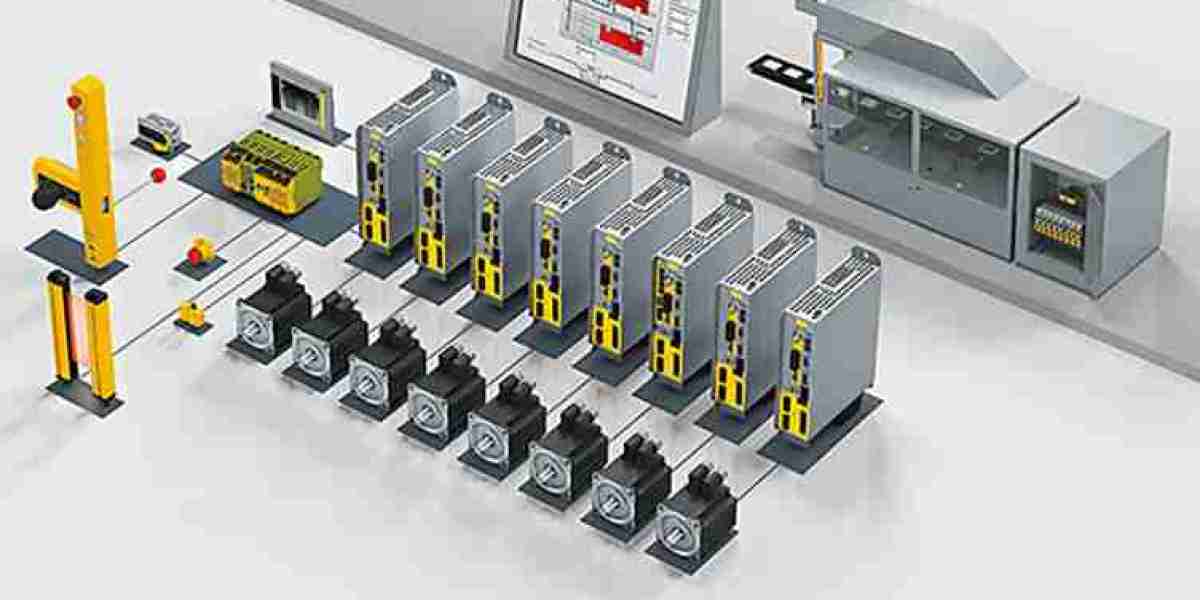The Distributed Control Systems market is undergoing a profound transformation driven by the integration of Artificial Intelligence (AI) and Machine Learning (ML) technologies. Traditionally focused on automating and controlling industrial processes, DCS platforms are now evolving into intelligent systems capable of predictive analytics, adaptive control, and autonomous decision-making. This evolution is reshaping how industries manage complex operations, optimize performance, and enhance safety.
This article explores the dynamic impact of AI and ML on the Distributed Control Systems market, highlighting key trends, benefits, challenges, and future prospects.
The Role of AI and Machine Learning in DCS
Distributed Control Systems have been central to automating continuous and batch processes in industries such as oil & gas, power generation, chemicals, pharmaceuticals, and manufacturing. However, conventional DCS platforms primarily rely on predefined control logic and human intervention for decision-making.
AI and ML introduce data-driven intelligence to DCS by enabling systems to:
Analyze vast amounts of real-time and historical data
Detect patterns and anomalies beyond human capability
Predict equipment failures and process deviations
Optimize control parameters dynamically
Automate complex decision-making processes
By embedding these capabilities, DCS becomes more proactive, adaptive, and efficient.
Key Transformational Trends
1. Predictive Maintenance and Asset Management
AI-powered predictive maintenance is one of the most impactful applications transforming DCS. By continuously monitoring sensor data and applying machine learning algorithms, DCS can forecast equipment wear, potential failures, or quality deviations. This shift from reactive to predictive maintenance reduces downtime, lowers repair costs, and extends asset life.
2. Process Optimization and Adaptive Control
Machine learning models analyze process variables and outcomes to identify optimal operating conditions. DCS platforms equipped with AI can automatically adjust control loops in real-time, improving throughput, energy efficiency, and product quality. Adaptive control systems learn from changing environmental or operational conditions and adjust parameters without manual recalibration.
3. Enhanced Fault Detection and Diagnostics
AI algorithms improve fault detection accuracy by distinguishing between normal process variability and genuine anomalies. This reduces false alarms and enables faster root cause analysis. As a result, operators receive actionable insights that enhance process reliability and safety.
4. Advanced Operator Assistance
AI-driven decision support tools integrated into DCS provide operators with recommendations, scenario simulations, and risk assessments. Natural language processing (NLP) interfaces and augmented reality (AR) can further enhance operator situational awareness and training.
5. Integration with Industrial IoT and Digital Twins
AI-powered DCS solutions leverage Industrial Internet of Things (IIoT) data and digital twin models—virtual replicas of physical processes—for real-time simulation and optimization. This integration enhances predictive capabilities and allows virtual testing of control strategies before implementation.
Benefits Driving Market Adoption
Improved Operational Efficiency: AI-enabled DCS reduce energy consumption, optimize resource use, and enhance throughput.
Increased Safety and Compliance: Early anomaly detection and predictive alerts help prevent accidents and ensure regulatory compliance.
Cost Savings: Predictive maintenance and process optimization lower operational and maintenance expenses.
Scalability and Flexibility: AI allows DCS to adapt to changing process requirements and evolving business needs.
Competitive Advantage: Companies deploying intelligent DCS gain superior process control and operational insights, differentiating themselves in the market.
Challenges and Considerations
1. Data Quality and Availability
AI and ML models require large volumes of high-quality data for training and operation. Many existing DCS installations lack comprehensive sensor networks or have siloed data, complicating AI integration.
2. Complexity of Implementation
Incorporating AI into established DCS infrastructures involves complex system integration, customization, and testing. Organizations must carefully manage change to avoid operational disruptions.
3. Cybersecurity Risks
Increased connectivity and AI integration expand the attack surface for cyber threats. Securing AI-enabled DCS platforms is critical to protect sensitive industrial operations.
4. Skill Gaps
Effective AI deployment demands expertise in data science, machine learning, control engineering, and cybersecurity. The shortage of interdisciplinary talent remains a barrier.
5. Trust and Transparency
Operators and engineers need transparent AI models whose decisions and recommendations can be interpreted and trusted. Black-box AI systems may face resistance in safety-critical environments.
Future Outlook
The Distributed Control Systems market is expected to increasingly embrace AI and ML as core components of next-generation automation solutions. Key future developments include:
Explainable AI (XAI): Enhancing model transparency to improve operator trust and regulatory acceptance.
Edge AI: Deploying AI processing closer to data sources for real-time control and reduced latency.
Collaborative AI: Combining human expertise with AI insights for hybrid decision-making.
Standardization: Developing industry standards for AI integration in DCS to ensure interoperability and compliance.
With the rise of smart factories and Industry 4.0, the AI-driven transformation of DCS will accelerate, enabling smarter, safer, and more sustainable industrial processes.
Conclusion
Artificial Intelligence and Machine Learning are revolutionizing the Distributed Control Systems market by transforming traditional automation into intelligent, adaptive, and predictive control platforms. This paradigm shift offers substantial benefits including enhanced efficiency, safety, and cost savings, while also posing challenges around data, cybersecurity, and workforce skills.




